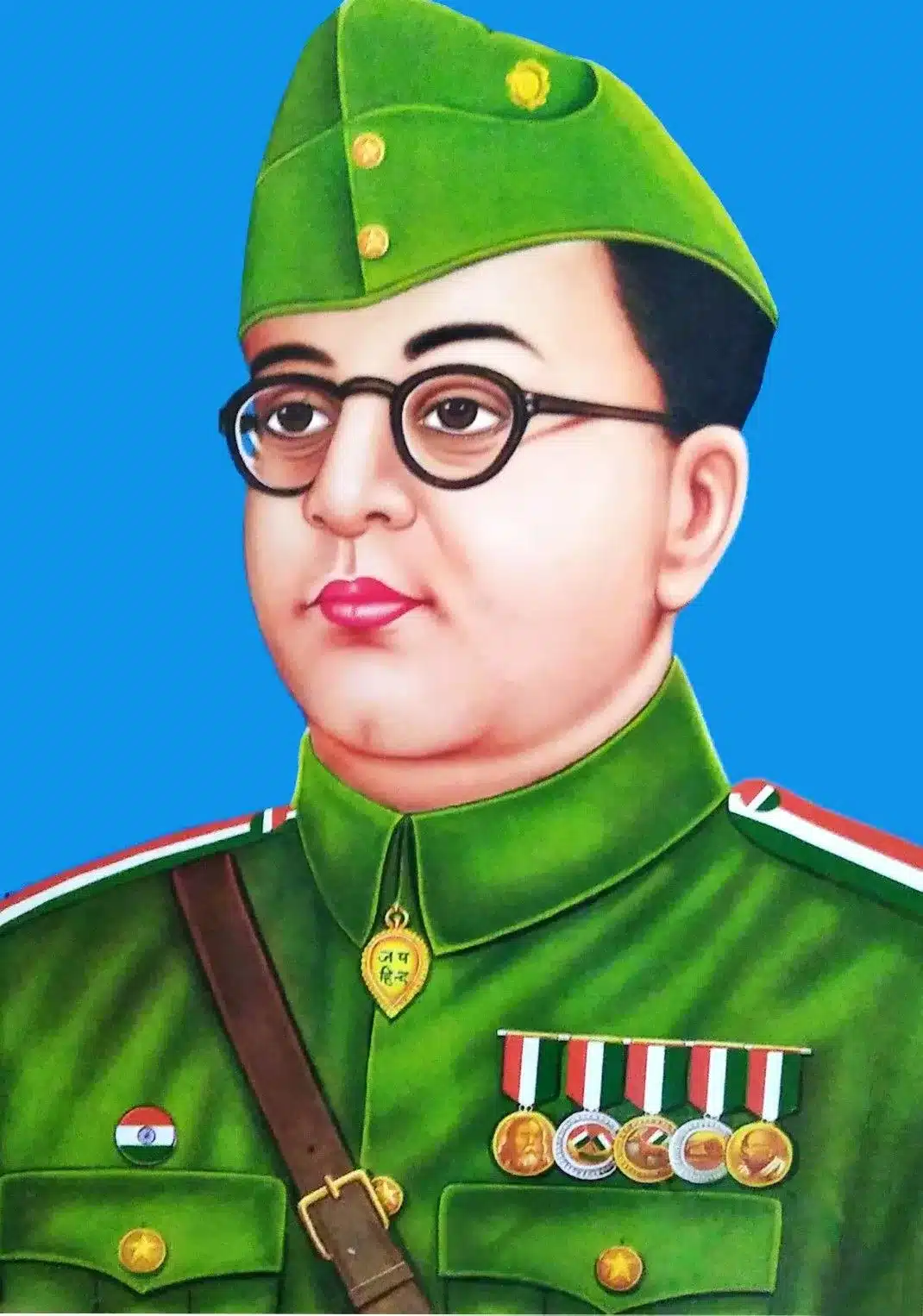About Netaji Subhas Chandra Bose
- He was an Indian nationalist leader who was a key figure in the Indian independence movement against British colonial rule.
- He was born on January 23, 1897, in Cuttack, Orissa.
- In 1920, he passed the civil service examination, but in April 1921, after hearing of the nationalist turmoil in India, he resigned from his position.
- Bose then joined the Indian National Congress and actively participated in the Indian independence movement.
- Bose at first worked with C.R. Das in Bengal, under whose mentorship he flowered.
- He was a close associate of Mahatma Gandhi and Jawaharlal Nehru.
- Bose was elected president of the Indian National Congress for two consecutive terms but resigned from the post following ideological conflicts with Mahatma Gandhi.
- In 1939, he formed the Forward Bloc, an organization aimed at unifying all the anti-British forces in India.
- Netaji was strongly influenced by Swami Vivekananda’s teaching and was known for his patriotic zeal as a student.
- At the outset of the Second World War, he fled from India and traveled to the Soviet Union, Germany and Japan, seeking an alliance with the aim of attacking the British in India.
- With Japanese assistance, he reorganized and later led the Indian National Army, formed from Indian prisoners-of-war and plantation workers from Malaya, Singapore, and other parts of Southeast Asia, against British forces.
- With Japanese monetary, political, diplomatic, and military assistance, he formed the Azad Hind Government in exile, and regrouped, and led the Indian National Army in battle against the allies at Imphal and in Burma.
- He is believed to have died on August 18, 1945, in a plane crash over Taiwan. The exact circumstances of his death are still shrouded in mystery and controversy.
Q1) Who was Swami Vivekananda?
Swami Vivekananda (1863 – 1902), born Narendranath Datta,was a Hindu monk and one of the most celebrated spiritual leaders of India. He was the foremost disciple of Sri Ramakrishna Paramhamsa and a world spokesperson for Vedanta. He was hailed as a Dhyana Sidha, a meditation expert, by his guru Ramakrishna Paramhamsa. He attempted to combine Indian spirituality with Western material progress, maintaining that the two supplemented and complemented one another. He believed that the path to self-purification is through helping others. He encouraged people to engage in selfless service
Source: Supreme Court dismisses plea seeking to declare Netaji as ‘son of the nation’
Last updated on June, 2025
→ UPSC Notification 2025 was released on 22nd January 2025.
→ UPSC Prelims Result 2025 is out now for the CSE held on 25 May 2025.
→ UPSC Prelims Question Paper 2025 and Unofficial Prelims Answer Key 2025 are available now.
→ UPSC Calendar 2026 is released on 15th May, 2025.
→ The UPSC Vacancy 2025 were released 1129, out of which 979 were for UPSC CSE and remaining 150 are for UPSC IFoS.
→ UPSC Mains 2025 will be conducted on 22nd August 2025.
→ UPSC Prelims 2026 will be conducted on 24th May, 2026 & UPSC Mains 2026 will be conducted on 21st August 2026.
→ The UPSC Selection Process is of 3 stages-Prelims, Mains and Interview.
→ UPSC Result 2024 is released with latest UPSC Marksheet 2024. Check Now!
→ UPSC Toppers List 2024 is released now. Shakti Dubey is UPSC AIR 1 2024 Topper.
→ Also check Best IAS Coaching in Delhi
























